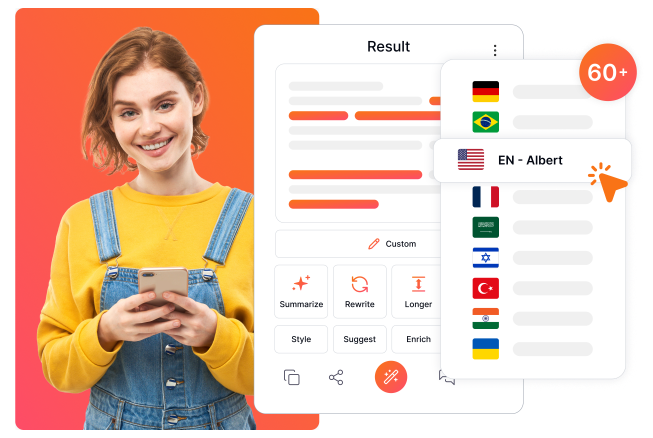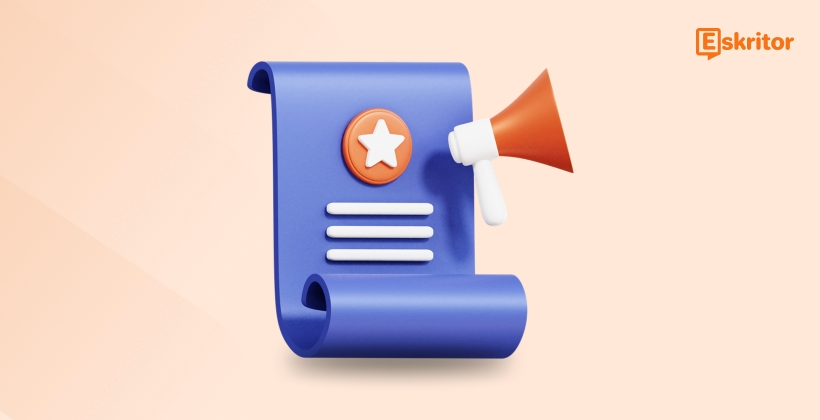Why AI Editing is Revolutionizing Proofreading
Why AI Editing is Revolutionizing Proofreading
Blog Article
The Role of AI in Modern Editing Practices
Artificial intelligence (AI) publishing technology has developed fast over the past decade, reshaping the way we produce and communicate with prepared content. From syntax correction tools to AI-generated books, the possibilities appear limitless. But where just is that engineering heading? Let's discover the innovations, problems, and possible future of AI writer.

How AI Writing Engineering Operates Nowadays
At their key, AI writing technology depends on Natural Language Control (NLP) and device learning. These technologies permit designs to understand, create, and increase human language. Resources available nowadays master projects like:
1. Material Formation
AI has achieved a spot wherever it could create total website articles, social networking sayings, and actually media articles. Some types are capable of mimicking human writing types so effectively that unique between AI- and human-written content is now increasingly difficult.
2. Syntax and Style Idea
AI-powered publishing assistants don't just check always for grammar and punctuation mistakes; in addition they provide suggestions to enhance tone, understanding, and syntax, creating complicated publishing accessible to a wide audience.
3. Sentiment Analysis
AI may consider the mental tone of a bit, allowing companies to examine how their communications may resonate with readers. This really is particularly of good use in advertising and customer interaction.
The Recent Developments in AI Publishing Technology
Many styles are shaping the following period of AI-powered publishing methods:
• Personalization
AI writing technology is increasingly capable of tailoring content to personal preferences. Models may conform to a user's writing design, ensuring the output thinks authentic.
• Multilingual Capabilities
Many AI instruments are expanding their world wide reach by offering improved interpretation functions and help for multiple languages.
• Improved Research Functions
AI tools today possess the ability to analyze vast levels of information and offer fact-checked, well-researched publishing in moments, simplifying the process for experts in industries like law, fund, and journalism.
What the Potential Keeps for AI Writing Engineering
1. Increased Creativity
While recent AI is good at generating material, its creativity is still limited to designs within their teaching data. Future AI isn't only estimated to aid but to produce original, useful operates that concern individual imagination.
2. Smooth Venture
Imagine an AI that works along with you in real-time, performing your sentences, performing stay edits, and actually brainstorming ideas. AI publishing tools may possibly shortly become co-authors, permitting imagination to flow uninterrupted.
3. Ethical and Accessible Design
With rising matter about plagiarism, misinformation, and tendency, developers will work toward more translucent AI instruction processes and moral implementation. Potential resources will more than likely offer more extensive details and actions to ensure accountability.
Issues and Factors
The progress of AI writing engineering isn't without hurdles, including:
• Moral Problems

Who owns material developed by AI? How can we guarantee AI-generated content isn't spreading misinformation? These debates remain unresolved.
• Human-AI Stability
Will AI match human creativity or entirely replace certain functions? Many writers and artists concern yourself with their relevance in an AI-driven world.
• Accessibility Split
Not all agencies or regions have identical access to cutting-edge AI instruments, raising questions in regards to the influence of the technology on world wide inequality.
Changing the Way We Write
AI writing engineering is still in its infancy compared to its potential. Whether you're students designing documents, a content marketer targeting specific readers, or perhaps a author seeking creativity, AI methods will continue to revolutionize the publishing process. The next decade promises breakthroughs that mix human ingenuity with device intelligence, creating a potential where publishing is more effective, available, and impactful than actually before.
Report this page